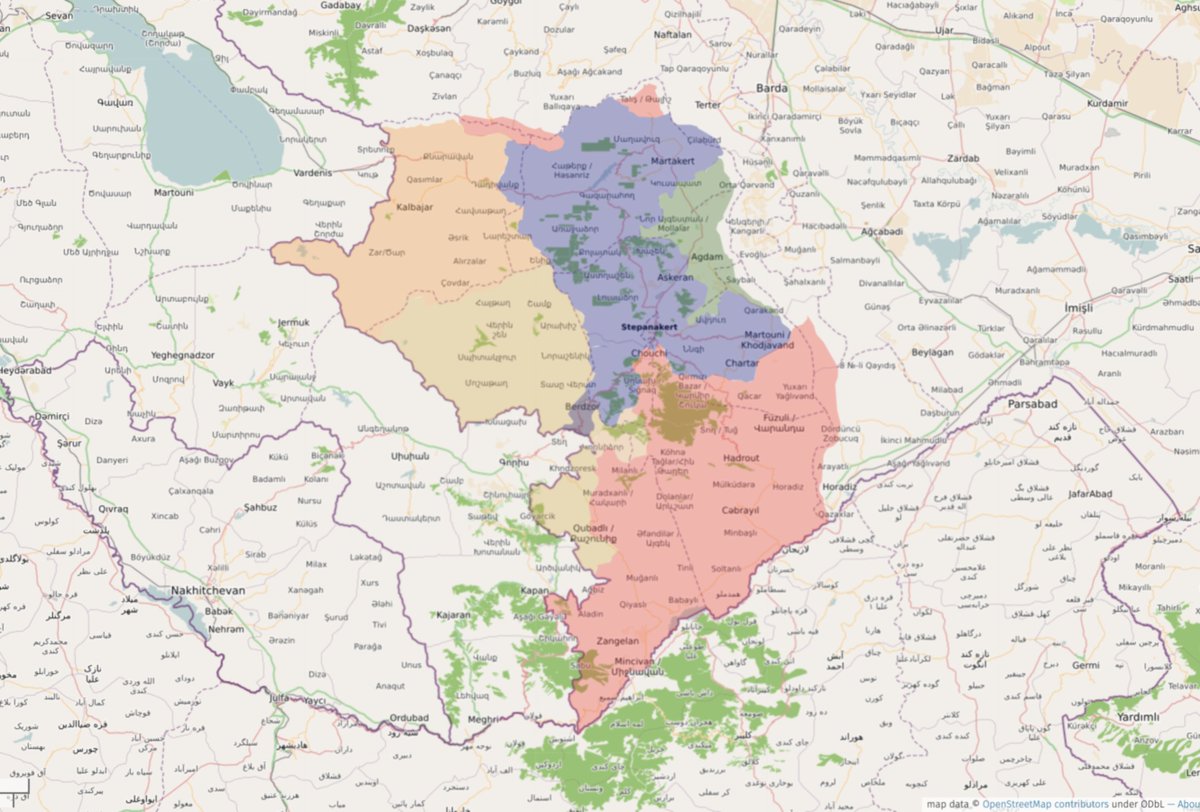How can Azerbaijanis return to Khojali or Armenians to Hadrut?
Russia has repeated on multiple occasions it is ‘confident’ that all refugees from Karabakh can return to their homes.
But some areas inhabited by Azerbaijanis before the start of the Karabakh conflict are still not under the control of the Azerbaijani army. According to this logic, some point out, Armenian refugees could return to territories under the control of Baku.
- Creation of new transport corridors linking Armenia, Azerbaijan, Russia begins
- The fight for Karabakh is over, but the battle with PTSD is just beginning
Russian Foreign Ministry on clause 7 of the truce
Speaking at a briefing in Moscow, Russian Ministry of Foreign Affairs Spokeswoman Maria Zakharova spoke about the seventh paragraph of the trilateral statement of the leaders of Azerbaijan, Armenia and Russia, signed on November 10, 2020. With this statement, hostilities in Karabakh, which lasted 44 days, were ended.
The specified paragraph of the tripartite statement implies the return of internally displaced persons and refugees to Nagorno-Karabakh and adjacent areas under the control of the Office of the UN High Commissioner for Refugees.
According to Zakharova, this applies to everyone who was forced to leave their previous place of residence.
“At present, we are really observing a rather intensive process of the return of Armenians who had previously left their homes in connection with the well-known events of last autumn. We proceed from the fact that the specified clause of the trilateral statement applies to all who were forced to leave their previous places of residence,” said Zakharova.
What is the problem?
Despite all these statements, in reality the return of some of the refugees and displaced persons is currently very problematic.
After the end of the second Karabakh war, according to the aforementioned trilateral statement, a part of Nagorno-Karabakh remained with the Armenian side and Russian peacekeepers were brought in there.
In other words, Azerbaijani migrants from Khankendi (Stepanakert), Khojali and part of the Khojavend (Martuni) regions will have to return to the territory that remains under the control of the de facto government of Nagorno-Karabakh and Russian peacekeepers.
And the Armenian refugees will have to return to some territories where they lived before the start of the Karabakh conflict, already occupied by the Azerbaijani army.

Communication difficulties
According to the Azerbaijani diplomat, former Foreign Minister of Azerbaijan Tofig Zulfugarov, the political potential of the joint statement of November 10 is almost exhausted, since most of the points have either already been implemented or their implementation requires additional clarifications.
“The problem of the conflict between Armenia and Azerbaijan is increasingly turning into a post-conflict relationship between the two neighboring states,” he said.
“The issues of the process of reintegration of territories temporarily in the zone of responsibility of the peacekeeping forces and the observation mission constantly make various topics of a military, economic, informational and political nature relevant. These topics involve various departments and structures of the state administration system in solving these problems.
It is sometimes difficult to determine where the powers of one department begin and the powers of another end. Moreover, having an idea of the “traditions” of our officials’ work, you understand that in order to “protect themselves”, they try to get “good” from the very top even on a small issue … and this reduces the efficiency of solving problems and increases the time frame for execution.
Or let us take, for example, such a question, and to whom to contact for a solution of this or that issue, for example, the head of the observation mission or the commander of the SPM? Directly to the President? It is difficult, and there is nothing to it … so the solution of many issues is being delayed, “Zulfugarov wrote on his Facebook page.
Commentary
Azerbaijani political observer Asaf Guliyev believes that with its latest statement, the Russian Foreign Ministry is trying to bring itself to the “clean water” and present Russia as the only force capable of reconciling the Armenian and Azerbaijani peoples.
“In fact, this is all fraught with enormous difficulties. Two months ago, these peoples fought among themselves, and it is too early to talk about reconciliation. I don’t see any possibility of living together at this stage. All this takes a lot of time.
Yes, one could try, as an experiment, a pilot project, to organize the return of the Armenian population to one of the villages under the control of the Azerbaijani army. But there are risks here too. And the factor of trust cannot be ruled out – are the Armenians ready to return to the territory where the power and all law enforcement agencies belong to Azerbaijan? ” – Guliyev emphasized.
“There is large-scale work to return refugees and displaced persons to Karabakh, and over time, Armenians and Azerbaijanis will still have to live together, like many years before the conflict. But, again, it takes time,” he added.



















